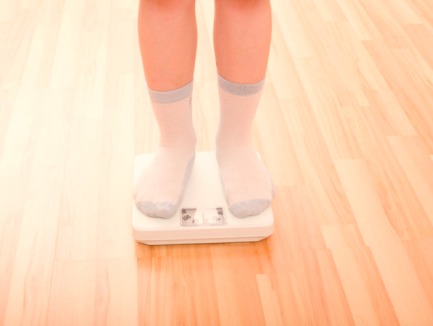 Most of us know schools as institutions of learning, usually associated with “the three Rs,” but now schools in 19 states are reporting progress on another subject: “BMI”—body mass index.
Most of us know schools as institutions of learning, usually associated with “the three Rs,” but now schools in 19 states are reporting progress on another subject: “BMI”—body mass index.
These schools are measuring the heights and weights of students to determine BMI, a measure of weight based on height, then sending home letters to inform parents of their children’s BMI status. As a pediatric nutritionist, I am not pleased.
Child obesity is at near epidemic proportions, with nearly one in three children overweight or obese. Obesity is a gateway disease to many chronic health problems, including type 2 diabetes, hypertension, heart disease and joint problems.
I don’t want to see kids struggle with obesity or become obese. Not only for those reasons but also because it adds to their physical discomfort. Most importantly, I don’t want children saddled with chronic health problems that they should not encounter for decades and that might be prevented altogether.
What? A specialist in child nutrition who doesn’t want parents to be aware of their children’s abnormal weight? No, I didn’t say that.
I spend a good portion of my clinical time counseling motivated parents (and often unmotivated parents, but that’s for another blog post) about making positive changes to normalize their children’s weight. The key word here is “school.”
Schools these days seem to be tasked with doing just about everything related to raising kids: feeding them breakfast and lunch, teaching them (not just general knowledge, but good habits, manners, social skills, etc.), helping them with homework after school and, often, administering medication.
So what’s the problem with these BMI letters? Several things:
- Parents should be taking their children for physical exams at least annually. The BMI is part of a standard pediatric physical, so in all likelihood, this information is known to the children’s pediatricians. Let’s hope that better access to affordable insurance will make this even easier for parents to do. However, while such access may get children to see a pediatrician, it won’t solve the issue of childhood obesity. Read on.
- Parents of under- or overweight children will likely need some sessions with a registered dietitian skilled in working with kids and parents. Few health plans currently cover weight management. If they do, it is often for fewer hours or visits than are needed to make permanent dietary and lifestyle changes. The schools are not referring parents to helpful resources or making help available—just telling parents that they need to get some help. That’s not the same.
- This is a perfect trigger for bullying. The kids know they’re being screened and they also know who the fat kids are. (Even at that age, the eyeballs are a keen assessment tool.) You can almost hear the taunts directed at the heavier kids once parents start receiving the letters. This just draws more attention to the issue. Bad idea.
I heartily applaud the intent of this initiative by the schools (as long as the intent is truly to help children, and not just the work of some politician or school board wanting to score points with constituents). But schools should get out of this business and get back to what they do well: teaching children, feeding them properly during the school day (school meals have improved tremendously) and providing structure.
Schools have an important role in children’s lives; this just isn’t it.
And if politicians or school boards really want to fight obesity, they can make physical education a daily activity for all kids, kindergarten through grade 12.


Comments on this entry are closed.
You say that schools should be for the Three Rs (if only that were the case) but you seem okay with schools being a social service center, responsible for feeding kids year around in many cases.
As for sending notes home to the parents of the fatties, this is a logical extension of what you are already comfortable with.
Personally I think schools should mind their own business and not try to preempt parents. I never saw school administrators or school personnel as the source on any particular wisdom.